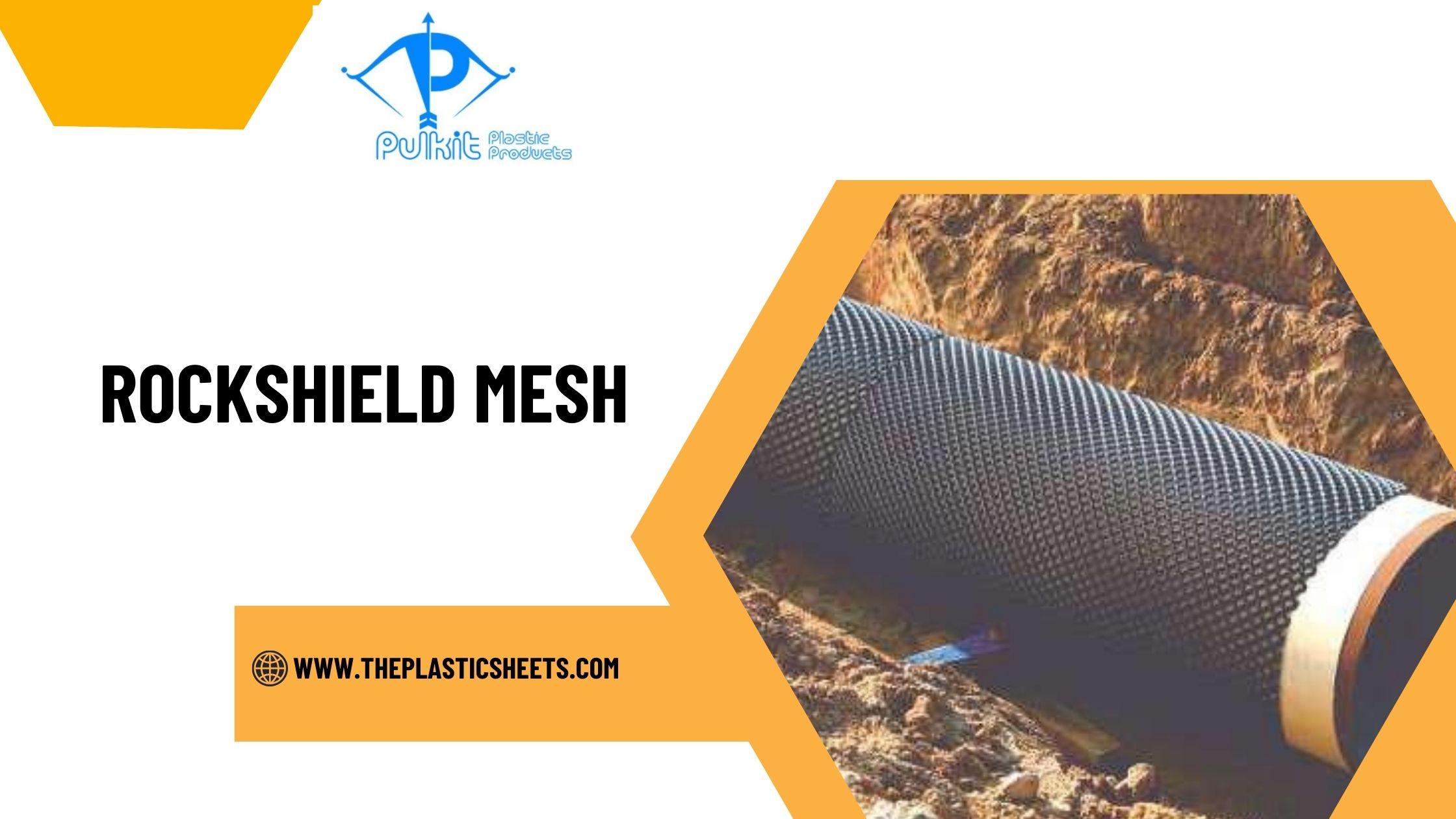Rockshield Mesh is an essential component in the construction and protection of pipelines, particularly in environments where geological movements and backfilling can pose significant risks. This article delves into the materials typically used to manufacture Rockshield Mesh, its properties, installation methods, pricing, and suppliers, along with frequently asked questions.
Materials Used in Manufacturing Rockshield Mesh
High-Density Polyethylene (HDPE)
The primary material used in the production of Rockshield Mesh is high-density polyethylene (HDPE). This thermoplastic polymer is favored for several reasons:
- Durability: HDPE is known for its strength and resistance to impact, making it ideal for protecting pipelines from damage caused by rocks and other abrasive materials during backfilling.
- Chemical Resistance: The chemical inertness of HDPE ensures that it does not degrade or rot over time, even when exposed to harsh environmental conditions.
- Flexibility: HDPE's flexibility allows it to conform to various shapes and sizes of pipelines, facilitating easier Rockshield Mesh installation in challenging environments.
Mesh Structure
Rockshield Mesh features a diamond-shaped open mesh structure that enhances its protective capabilities. This design allows for:
- Water Flow: The open structure permits water to flow through without compromising the cathodic protection systems essential for preventing corrosion.
- Impact Absorption: The mesh's design helps distribute impacts from external forces, thereby reducing the risk of damage to the pipeline coating.
Thickness and Weight
Typically, Rockshield Mesh comes in various thicknesses, with common specifications including:
- Thickness: Ranges from 6 mm to 11 mm.
- Weight: Approximately 1700 g per square meter for thicker variants.
These specifications contribute to its overall effectiveness in protecting buried pipelines.
Properties of Rockshield Mesh
Rockshield Mesh is engineered to meet specific performance criteria:
- Temperature Resistance: Capable of withstanding temperatures between -30°C and +100°C (-22°F to +212°F), making it suitable for diverse climatic conditions.
- Impact Resistance: With an impact resistance rating of 17 Joules, it provides robust protection against physical impacts.
- Compressive Strength: Exhibits compressive strength exceeding 600 KPa at 50% deformation, ensuring it can withstand substantial loads without failing.
Installation of Rockshield Mesh
Installation Methods
Installing Rockshield Mesh involves wrapping the mesh around the pipeline and securing it with strapping bands. There are several methods for installation:
- Longitudinal Wrapping: The mesh is wrapped along the length of the pipeline.
- Latitudinal Wrapping: The mesh is wrapped around the pipeline's circumference.
- Spiral Wrapping: The mesh is applied in a spiral manner for enhanced coverage.
These methods ensure complete protection against geological hazards and backfilling impacts.
Ease of Installation
One of the standout features of Rockshield Mesh is its user-friendly installation process. Its lightweight nature and flexibility allow for quick handling and application, even in difficult terrains.
Pricing and Suppliers
Rockshield Mesh Price
The Rockshield Mesh Price can vary based on factors such as thickness, roll size, and supplier. Generally, prices range from $0.50 to $2.00 per square meter depending on these variables. For specific pricing details, it is advisable to consult suppliers directly or check online marketplaces.
Rockshield Mesh Suppliers
Several Rockshield Mesh Suppliers companies specialize in the production and supply of Rockshield Mesh. Notable suppliers include:
- Pulkit Plastic Products: Known for their high-quality plastic products, including Rockshield Mesh.
- Singhal Industries: Offers a range of protective mesh solutions tailored for pipeline applications.
- Seal For Life Technologies: Provides both offshore and onshore Rockshield products designed for various environmental conditions.
Conclusion
In summary, Rockshield Mesh serves a crucial role in protecting pipelines from geological hazards through its durable construction from high-density polyethylene. Its unique design allows for effective impact absorption while facilitating water flow to maintain cathodic protection systems. With various installation methods available and a range of suppliers offering competitive pricing, Rockshield Mesh remains a top choice for pipeline protection across different environments. Whether you are involved in onshore or offshore projects, understanding the materials and properties of Rockshield Mesh will help ensure optimal performance and longevity of your pipeline systems.Rockshield Mesh can be purchased from various suppliers including Pulkit Plastic Products Singhal Industries, and Seal For Life Technologies. Prices may vary based on specifications.
Frequently Asked Questions (FAQ)
What is Rockshield Mesh?
Rockshield Mesh is a protective mesh made primarily from high-density polyethylene (HDPE) designed to safeguard pipelines from damage caused by rocks and geological movements during backfilling.
How is Rockshield Mesh installed?
Installation involves wrapping the mesh around the pipeline using methods such as longitudinal, latitudinal, or spiral wrapping, secured with strapping bands.
What are the benefits of using Rockshield Mesh?
The benefits include enhanced pipeline protection against impacts, chemical resistance, flexibility for easy installation, and durability under extreme weather conditions.
Can Rockshield Mesh be used offshore?
Yes, there are specific variants designed for offshore applications that provide additional protection against marine hazards such as trawl activities and rock placement.

